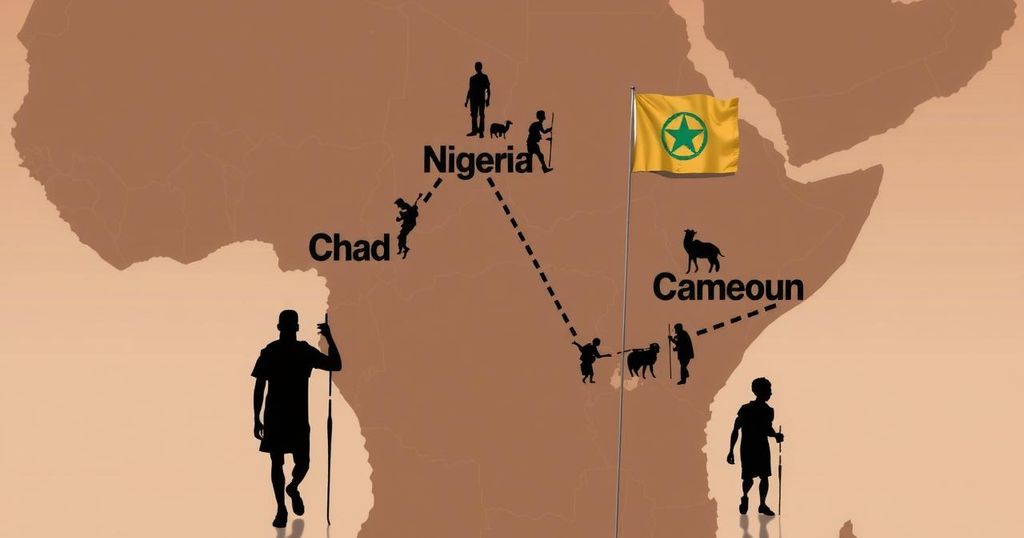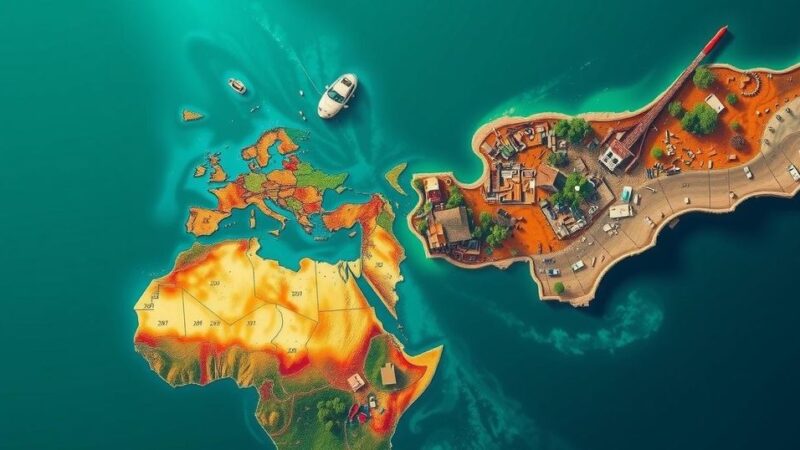Severe flooding has affected over 2.7 million people across Chad, Nigeria, and Cameroon due to torrential rains. The crisis has resulted in significant loss of lives, homes, farmland, and livestock, raising concerns of acute food insecurity. Action Against Hunger is urging for immediate funding to aid the most vulnerable populations facing critical needs.
Severe flooding across Chad, Nigeria, and Cameroon has resulted in millions of individuals being affected. Reports indicate that over 2.7 million people have suffered as a consequence of torrential rains, with 1.7 million in Chad, one million in Nigeria, and over 230,000 in Cameroon. Action Against Hunger has identified a pressing need for funding to facilitate an immediate emergency response aimed at protecting the most vulnerable communities within these regions. In Chad, the excessive rainfall, which commenced in late July, has caused significant destruction across various provinces, including the Lac, Mayo-Kebbi Est, Mandoul, Tandjilé, and Batah regions. The Sila province has also been severely impacted, particularly as it has been accommodating refugees from Sudan’s civil unrest. The floods have resulted in more than 500 fatalities, the submersion of over 210,000 homes, the loss of 880,000 acres of agricultural land, and the death of nearly 70,000 livestock, intensifying the already critical food insecurity faced by 3.4 million people in the country. Action Against Hunger’s Country Director in Chad, Gustave Gnagny, stated that, “The affected populations are facing critical needs for food, drinking water, shelter, health and protection. According to initial estimates, nearly $100 million is needed to bring relief to these stricken populations. So far, barely 10% of this sum has been mobilized.” In Nigeria, the flooding has devastated multiple states, including Borno, Adamawa, Bauchi, Enugu, Jigawa, Kanu, Bayelsa, and Yobe, leading to tens of thousands of individuals becoming homeless and food-insecure. Prior to the flooding crisis, an alarming 32 million people across Nigeria were already experiencing severe food insecurity. The floods have inundated half of Borno state’s capital, Maiduguri, impacting approximately 414,000 residents. Thierno Samba Diallo, the Country Director for Action Against Hunger in Nigeria, noted that, “The floods have damaged over 300,000 acres of farmland in Nigeria. The damage is likely to exacerbate food insecurity during the current lean season and in the months to come.” In Cameroon’s Far-North region, flooding has left 236,000 individuals affected, with over 30,000 acres of crops being destroyed. Concerns regarding the potential for waterborne diseases are rising. Pascal Maillard, Country Director of Action Against Hunger in Cameroon, emphasized the necessity for humanitarian mobilization when he stated that, “Certain infrastructure such as bridges and dykes have already collapsed…the emergency is here. It is pressing to respond to the current emergency, but also critical to help affected families recover and adapt to climate change in the months and years ahead.” In conclusion, the climatic shocks that have recently plagued Chad, Nigeria, and Cameroon have highlighted the vulnerability of the affected populations amidst escalating crises. The floods have ravaged farmland, livestock, and already fragile livelihoods while underscoring the dire need for immediate humanitarian aid and long-term strategies to adapt to climate change.
The context of severe flooding in Central and East Africa is increasingly alarming, exacerbated by the impacts of climate change. Rainfall patterns have changed significantly, resulting in excessive downpours that lead to widespread destruction in already vulnerable regions. Economic instability, ongoing conflicts, and high food insecurity add to the challenges faced by these populations. Humanitarian organizations like Action Against Hunger play a crucial role in responding to these emergencies, addressing immediate needs while also advocating for long-term solutions to improve resilience against future climatic shocks.
The flooding crisis in Chad, Nigeria, and Cameroon serves as a stark reminder of the vulnerability of populations in the face of climate-induced disasters. It is imperative that humanitarian aid is swiftly mobilized to address the urgent needs for food, clean water, shelter, and medical assistance, while also implementing strategies that support recovery and resilience against future crises.
Original Source: www.actionagainsthunger.org






